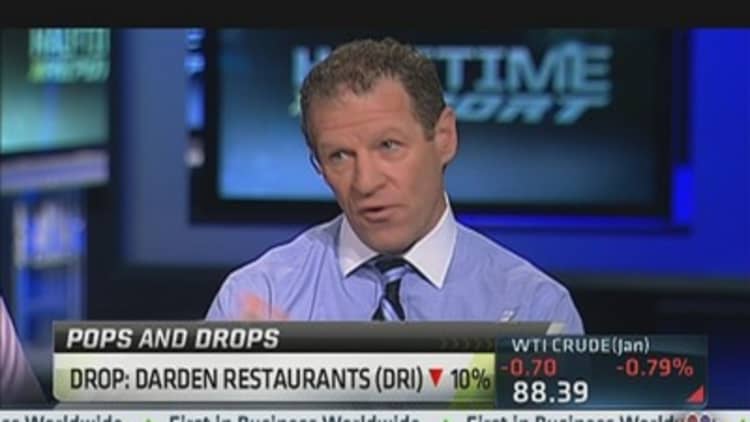The euro rallied to a near seven-week high against the dollar Tuesday after Greece announced better-than-expected terms for its debt buyback, fueling optimism Athens will continue to receive international aid to avoid a default.
The U.S. dollar remained pressured against most major currencies as uncertainty persisted over whether Republicans would reach a deal to prevent spending cuts and tax increases that could push the U.S. economy back into recession.
But the good news came from Greece, which said it would spend 10 billion euros to buy back bonds at a price range that topped market expectations. The news helped push Italian and Spanish bond yields lower.
The buyback is part of a deal reached last week by Greece's international lenders to cut its debt and needs to be completed before the IMF can release its share of the aid.
"There's some optimism around the Greek buyback," said Eric Viloria, senior currency strategist at Forex.com in New York. "That's seen as sort of the last major risk event for some time. Technically, it looks like (the euro) does have some more room to the upside."
The euro rose 0.3 percent to $1.3092, having risen as high as $1.3107, the strongest since Oct. 18. Further chart resistance is located at the October high around $1.3140 and the September high around $1.3170.

Some US$5.1 billion in euros had already changed hands on Tuesday with a few hours left in New York trade compared with $4.68 billion during the entire global trading day on Monday, according to Reuters Dealing data.
"The market is taking a fairly optimistic view that we will see a smooth implementation of these (Greek) plans," said Ian Stannard, head of European FX strategy at Morgan Stanley in London.
He expected the euro to hold firm until the end of the year but warned it could come under selling pressure in 2013 due to the deterioration in the broader euro zone economy.
Morgan Stanley recommended clients enter a long euro/dollar position at $1.3050, with a target of $1.34.
Worries over efforts to avert the U.S. "fiscal cliff" hobbled the dollar despite its reputation as a refuge in times of uncertainty. Analysts said the dollar had stayed weak because of relatively positive developments in the euro zone.
The White House dismissed Republican proposals for steep spending cuts late on Monday, heightening concern lawmakers will not reach a deal in time to avert $600 billion in automatic budget measures due in early 2013.
"At the moment the market is ... likely expecting a last-minute fudge maybe with some delays and some temporary measures to tide them over to next year," Morgan Stanley's Stannard said.
Central Bank Decisions
The Canadian dollar rose against the U.S. dollar after the Bank of Canada held interest rates steady and kept its rate rise bias. The U.S. dollar fell 0.2 percent at C$0.9926.
The Reserve Bank of Australia cut its main cash rate to 3.0 percent, bringing the easing since May to 125 basis points and matching the trough hit during the darkest days of the global financial crisis.
But the Australian dollar rallied 0.5 percent to $1.0470 as traders said the rate cut was well discounted. Some had speculated a bigger 50-basis-point cut.
"Although the yield on the Aussie continues to contract, (it) still carries the highest rate in the industrialized world and as such will likely remain bid," Boris Schlossberg, managing director of FX Strategy at BK Asset Management in New York, wrote to clients.
The Swiss franc weakened, extending Monday's fall when Switzerland's largest banks said they would charge for some franc deposits. This pushed the euro to its highest since mid-September. The euro was last up 0.4 percent at 1.2128 francs.
The dollar shed 0.6 percent to 81.78 yen, further retreating from a 7 1/2-month high of 82.82 hit last month.
The yen has recovered from a recent slide sparked by the prospect of more monetary easing by the Bank of Japan after a Dec. 16 election. Some investors said there may be little scope for further falls.
"We saw an incredible amount of yen weakness in November, and this is running out of steam simply because we don't see any additional news flows out of Japan," said Ulrich Leuchtmann, head of FX research at Commerzbank.

